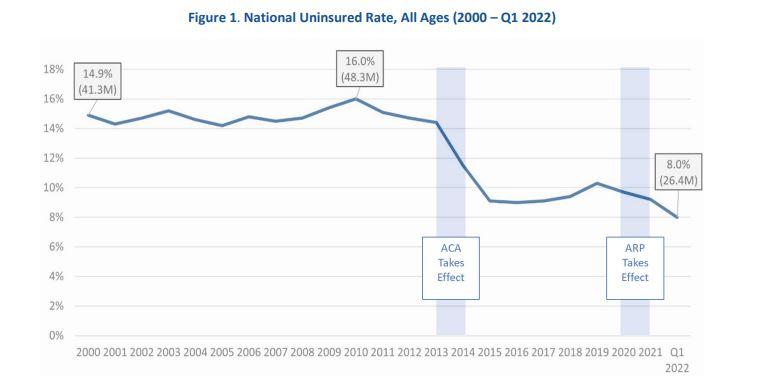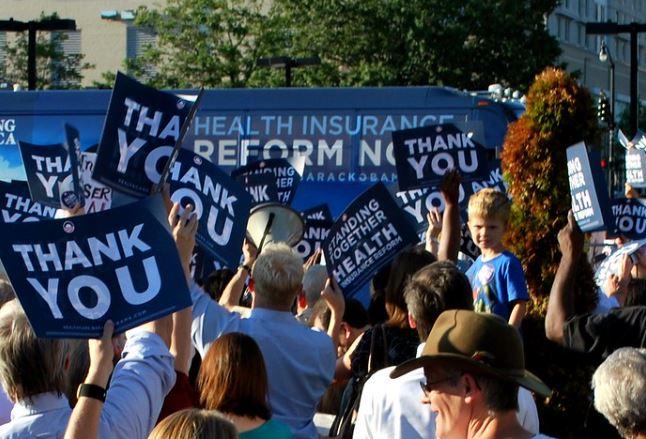At a time when it can feel like America’s most pressing problems aren’t being addressed, there’s some very good news on the healthcare front that everyone should know. The percentage of Americans who are uninsured has hit the lowest point in American history.
A report from the Office of Health Policy earlier this year announced that the uninsured rate hit an all-time low of 8% in the first quarter of 2022. To give some perspective, in 2010, before the Affordable Care Act (ACAalso known as Obamacare) had been fully implemented, the uninsured rate was twice as high at 16%.
To add to the drop in the number of uninsured, more Americans have purchased health insurance during the recent Open Enrollment Period through HealthCare.gov and state-based marketplaces than ever before.
“The historic 13.6 million people who have enrolled in a health insurance plan so far this period shows that the demand and need for affordable health care remains high,” Health and Human Services Secretary Xavier Becerra said in a statement.
A major reason for the increase in healthcare coverage has been the American Rescue Plan’s enhanced marketplace subsidies, state Medicaid expansions and an increase in enrollment outreach by the current administration.

Approximately 5.2 million Americans have gained health coverage since 2020. The new numbers were cause for celebration at the White House.
“From November 1st to December 15th, nearly 11.5 million Americans signed up for insurance on HealthCare.gov—about 1.8 million more people, an 18 percent increase, over the same period last year,” President Biden said in a statement. “That’s an all-time record, with enrollment still open and not counting people who have signed up for coverage through their state marketplaces. Gains like these helped us drive down the uninsured rate to eight percent earlier this year, its lowest level in history.”

The drop in the uninsured rate is a great example of the benefits of smart policy-making in Washington. The ACA wasn’t the most popular piece of legislation when it was passed in 2010. Critics on the right demonized it as a state takeover of healthcare that would result in death panels, sky-high premiums and socialized medicine. Many on the far left thought that the ACA was bad policy because it stopped short of offering full coverage for everyone like Bernie Sanders’s Medicare for All proposal.
But over time, the ACA has become a cornerstone in American healthcare policy that has changed the lives of millions. Former President Barack Obama knew it wasn’t perfect when it was passed, but he saw it as a strong foundation to build on. Now his Democratic predecessor has done just that and we’re seeing the results.
The American public has developed a much more favorable view of the ACA since the GOP’s 2017 crusade to “repeal and replace” the bill that failed in Congress. Now, 55% of Americans have a favorable opinion of the bill versus 42% who disapprove.
“I think it’s probably here to stay,” Republican senator John Cornyn recently told NBC News, referring to the ACA.
The numbers for healthcare sign-ups during this Open Enrollment Period are definitely encouraging but things may get even better. This year’s HealthCare.gov Open Enrollment Period has been extended until January 15, 2022







































